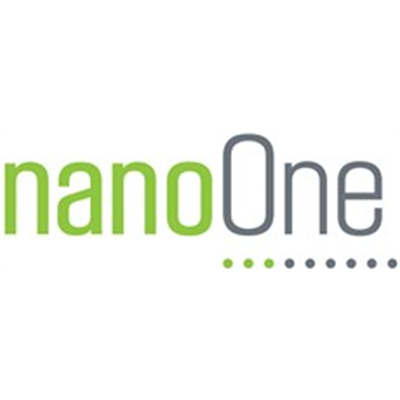Nano One Materials - A Game-Changing Battery Tech Company

Nano One Materials operates the only lithium iron cathode production plant in North America. Its innovative processes aim to reduce costs and environmental footprint. With partnerships across the supply chain, Nano One is positioned to enable the lithium-ion battery market's growth.
- Nano One Materials recently received a $16.9 million investment from Sumitomo Metal Mining.
- Nano One Materials is a technology company focused on manufacturing cathode active materials critical for lithium-ion batteries.
- Sumitomo Metal Mining's investment represents a 5% stake in Nano One.
- The collaboration between Nano One and Sumitomo aims to improve cathode materials for various applications, including lithium-ion batteries.
- Nano One is scaling up its technology and plans to have a commercial plant operational in the second half of 2026.
About Nano One Materials
Nano One Materials Corp. (TSX: NANO) is a Canadian clean technology company focused on developing patented processes for the low-cost, low-environmental footprint production of high-performance cathode materials used in lithium-ion batteries. The company has built up a robust patent portfolio over the last 10 years and has formed partnerships across the lithium-ion battery supply chain, from mining companies to cathode producers to cell manufacturers and automakers.
Nano One's technology aims to reduce the manufacturing costs and environmental footprint of cathode production while improving performance. This positions the company well to support the rapidly growing market for lithium-ion batteries driven by the electrification of vehicles, renewable energy storage, and other applications.
Interview with Chief Operating Officer, Alex Holmes
A North American Production Advantage
A key strategic advantage for Nano One is that it operates the only lithium iron phosphate (LFP) cathode production plant in North America, located just outside Montreal. The plant was acquired by Nano One in late 2021 and provides an existing facility and team to implement the company's production processes.
As Alex Holmes, Nano One's COO, explains, there is currently zero LFP cathode production in North America, with only one other announced project. However, demand is projected to grow from nothing today to 500,000 tons annually by the end of the decade. This offers a major opportunity for Nano One to establish itself as a leading regional producer before competitors enter the market.
The facility also provides Nano One with a means to produce large-scale samples and collaborate with partners on tailoring materials to meet automakers' specifications. Having an existing North American plant and team mitigates execution risk and provides the operator skills needed to scale up production.
Validating the Technology
A key focus for Nano One is validating its production process from lab scale through commercial-scale production. The company has already implemented its process at the acquired plant to produce LFP cathode material in commercial-scale equipment.
As Holmes explains, this validation process involves an iterative collaboration with cell manufacturers to test samples, receive feedback, and tweak the process and materials to meet specifications. Nano One is now at the stage of producing hundreds of kilos for testing by partners, with the goal of reaching the tons-scale samples needed by automakers.
The recent investment and partnership with Sumitomo Metal Mining provides further validation. Sumitomo is investing nearly CAD$17 million for a 5% stake in Nano One. Sumitomo extensively tested Nano One's materials and process as part of a 9-month due diligence process before making its investment. This demonstrates the commercial promise of Nano One's technology.
Sumitomo sees potential in Nano One's differentiated process for producing cathode materials with a lower environmental footprint and competitive costs. The collaboration will focus on tailoring materials to Sumitomo's customer specifications, especially in the Japanese auto ecosystem. The end goal is licensing agreements and joint ventures for both LFP and nickel-rich NMC cathode materials. Holmes explained Nano One's hybrid business model - large auto plants would likely license the technology to avoid capex, while smaller plants like for grid storage may do JVs where Nano One provides technology and Sumitomo provides capital.
Licensing Provides Flexibility
Rather than solely owning and operating cathode production facilities, Nano One plans to also license its technology and processes. This provides business model flexibility and mitigates the risk of being responsible for the massive capital expenditures required to build production lines sized for the automotive market.
As Holmes explains, automakers ultimately want at least two qualified suppliers and the licensing model enables Nano One's technology to be rolled out with partners. The company brings its technical knowledge and production skills while avoiding being on the hook for billions in capex.
For smaller scale production focused on markets like grid storage, Nano One may pursue joint ventures or self-funded facilities. Either way, the licensing model provides strategic flexibility.
Collaborating Across the Supply Chain
Through partnerships across the lithium-ion supply chain, Nano One is strategically positioned to support the battery market's growth. Licensing deals with automakers and joint ventures with cathode producers will pave the way to large-scale production.
At the same time, supply agreements with companies like Sumitomo Metal Mining provide access to key raw materials. And collaborations with cell manufacturers facilitate testing and validation of Nano One's innovative processes.
Conclusion
With its potential to significantly reduce costs and environmental impacts in cathode production, Nano One represents an attractive investment opportunity within the rapidly growing lithium-ion battery market.
The company's partnerships across the supply chain, existing production capacity in North America, and flexible licensing strategy position it well to capitalize on demand growth over the coming decade. Successful commercial validation of its process technology with key partners in the near-term could provide significant upside for investors.
While risks remain in terms of technology scale-up and market execution, Nano One's innovative processes and strategic approach make the company a potential leader in advanced lithium-ion cathode production. Investors bullish on electric vehicle and battery storage adoption would do well to consider adding this promising cleantech company to their portfolios.
Analyst's Notes




Subscribe to Our Channel
Stay Informed












